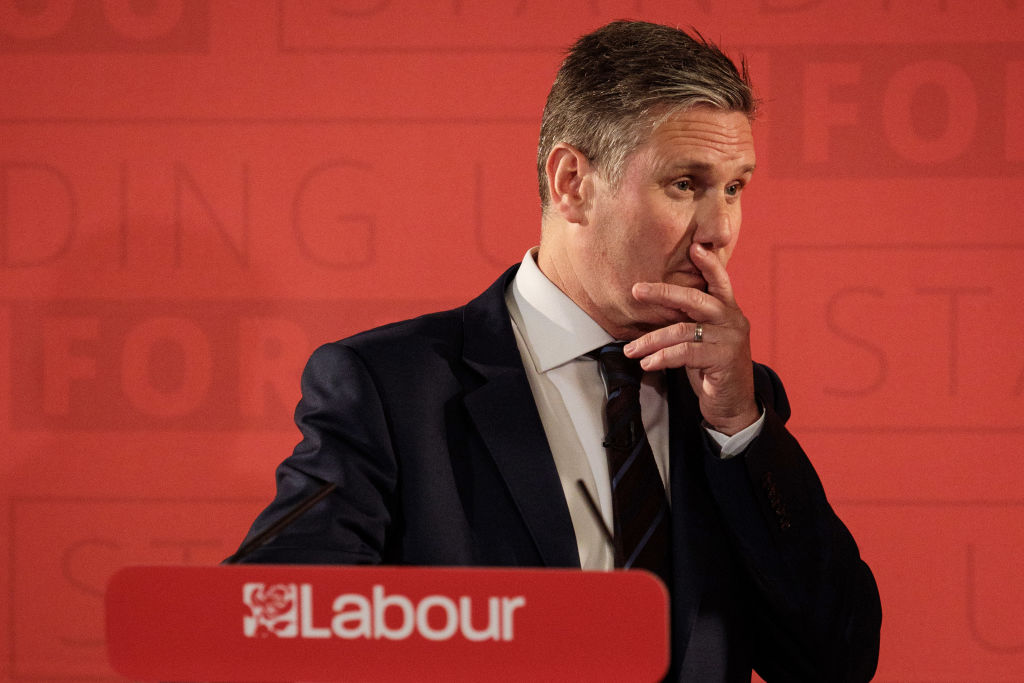Despite the government reaching its long-awaited milestone of ’sufficient progress’ in the Brexit talks last week, certain key figures on both sides of the debate seem intent on muddying the waters as much as possible. Mr Steerpike reports on David Davis’s latest efforts on that front, while Labour MPs are trying to understand the implications of Keir Starmer’s latest utterances on their party’s Brexit position.
The Shadow Brexit Secretary appeared to walk into a trap laid by Andrew Marr yesterday, in which the presenter asked him reasonably innocent questions about Labour’s demand for a ‘single market variant’ and the need for a new treaty enshrining the full access to and benefits of the single market and customs union, before pointing out that this would leave Britain in the position of a ‘vassal state’ (a term coined by Starmer’s own colleague Barry Gardiner) in which Britain would have to carry on paying money into the EU and copying and pasting EU laws. The key line from the interview was Starmer agreeing that Labour wanted ‘easy movement’ which would enable people to ‘come and work here freely’ and that ‘the end of free movement doesn’t mean the end of movement’.
Aside from the strangeness of the former Director of Public Prosecutions finding himself walked into the sort of trap that can very easily get laid during a cross-examination in court, was this really what Labour voters who backed Brexit had envisaged? Starmer’s proposal would essentially mean Britain having no control over the laws by which it must abide in order to get the benefits of single market and customs union access, and something that wasn’t called free movement but which will sound suspiciously like it to many of those voters. Easy movement, a low-budget version of free movement. Perhaps the next step would be for Labour to adopt the easyJet branding for Brexit, and advocate orange passports (though this would probably also delight the DUP, much to Jeremy Corbyn’s horror). Either way, it is a significant softening of the party’s Brexit stance.
Labour’s ongoing problem is of course that there is no easyBrexit, politically as well as technically. It’s not just worried about the Brexit voters who also supported the party. It’s also worried about the Remain voters who backed the party too. And there is a fair bit of internal pressure for as soft a Brexit as possible from backbenchers, though the group of MPs who are prepared to make a noise about the value of freedom of movement is a smaller kernel within the wider soft Brexit camp.
But Labour backbenchers seem mostly frustrated that Starmer is maintaining the ‘constructive ambiguity’ that the party adopted as a strategy during the 2017 election campaign. They don’t know what easy movement is, yet it’s the latest position of their frontbench – until the frontbench starts sounding a bit tougher in order to cheer up the Brexiteer vote in the party’s seats. They were complaining privately yesterday that this was making it much more difficult to highlight the government’s weaknesses on Brexit. It’s almost as though David Davis and Keir Starmer rely on one another to maintain the cloud of confusion so that neither has to fully confront what is going on.







Comments